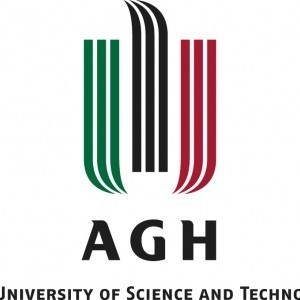Photos of university / #ntnu
The Master’s degree in Sustainable Energy at the Norwegian University of Science and Technology (NTNU) is a comprehensive and forward-looking program designed to equip students with the necessary knowledge and skills to develop and promote sustainable energy solutions. This program emphasizes the importance of renewable energy sources, energy efficiency, and innovative technology to address the global challenges of climate change and energy security. Students will explore a broad spectrum of topics, including solar, wind, hydro, and bioenergy, as well as energy storage, smart grids, and sustainable transport. The curriculum combines theoretical foundations with practical applications, preparing graduates to contribute to the development of clean energy systems and policies.
Throughout the program, students will have the opportunity to learn from leading researchers and industry experts through lectures, seminars, and hands-on projects. The program encourages interdisciplinary approaches, integrating engineering, environmental science, economics, and policy analysis to foster holistic understanding and innovative problem-solving skills. Students can specialize in areas such as renewable energy technology, energy management, or energy system analysis, tailoring their education to their career ambitions. The university's strong ties with industry partners and research centers provide students with valuable networking opportunities and real-world experience.
Graduates of the Sustainable Energy program will be well-equipped to work in various sectors, including energy companies, governmental agencies, consulting firms, and international organizations. They will be capable of designing sustainable energy systems, developing energy policies, and contributing to the transition towards a carbon-neutral society. The program also offers prospects for further research and doctoral studies for those interested in academic careers. Located in the environmentally conscious and technologically advanced city of Trondheim, NTNU provides an ideal setting for students passionate about creating a sustainable future through innovative energy solutions.
The Master's degree programme in Sustainable Energy at the Norwegian University of Science and Technology (NTNU) is designed to equip students with comprehensive knowledge and practical skills necessary to address the global challenges of energy production and consumption. The programme focuses on the development, implementation, and management of sustainable energy solutions, emphasizing renewable energy sources such as wind, solar, hydro, and bioenergy. Students will explore the technical, economic, and environmental aspects of energy systems, gaining a deep understanding of how to design and optimize energy technologies that reduce greenhouse gas emissions and promote environmental sustainability. The curriculum covers core topics including energy conversion, smart grids, energy storage, energy policy, and project management, ensuring graduates are well-prepared for leadership roles in the energy sector. Through a combination of theoretical coursework, hands-on laboratory work, and real-world case studies, students will learn to analyze energy systems, evaluate their sustainability, and develop innovative solutions for a sustainable future. The programme also emphasizes interdisciplinary collaboration and provides opportunities for international exchange, internships, and research projects, enabling students to build a global perspective on energy challenges. Graduates from this programme will be equipped to work in industries such as renewable energy development, energy consulting, policy analysis, and environmental management, contributing to the transition towards a sustainable energy future. The programme is designed to foster critical thinking, problem-solving skills, and a proactive approach to innovation in the energy sector, aligning with NTNU’s commitment to sustainable development and technological advancement.
Financing studies for the Sustainable Energy master's program at the Norwegian University of Science and Technology (NTNU) can vary depending on the student's nationality, residence status, and specific circumstances. As an international student, applicants from countries outside Norway and the EU/EEA may need to consider tuition fees, although in some cases, students from certain countries may be eligible for scholarships or financial aid. Generally, tuition fees for non-EU/EEA students are approximately NOK 95,000 per academic year, which covers the two-year master's program. Norwegian residents and students from the EU/EEA often benefit from free tuition at NTNU, but students should verify their eligibility for fee exemption.
In terms of funding sources, NTNU offers a range of scholarship opportunities for international students, including the NTNU Scholarships for highly qualified students. These scholarships typically provide full or partial coverage of tuition fees and may include a stipend to help with living expenses. Eligibility criteria include academic excellence and application through the university's scholarship portal.
Students are encouraged to explore external funding options as well, such as scholarships from home country governments or private organizations, grants, and sponsorships that may support studies abroad. Norway has a high living cost, and students need to budget for accommodation, food, transportation, and study materials. Estimated living expenses for one year are around NOK 120,000 to NOK 150,000, depending on accommodation choices and personal lifestyle, which students should consider when planning their finances.
International students are also allowed to work part-time during their studies, typically up to 20 hours per week during semester periods. This can help offset living costs and gain relevant experience. It is important to note that full-time work during studies may require permission from Norwegian authorities.
Students are advised to apply early for scholarships, explore loan options if available in their home countries, and plan their finances carefully before starting the program. Overall, students should prepare a comprehensive financial plan to cover university fees, living expenses, health insurance, and study-related costs, ensuring they can focus on their studies and fully benefit from the educational opportunities at NTNU's Sustainable Energy program.
The Master’s programme in Sustainable Energy at the Norwegian University of Science and Technology (NTNU) offers a comprehensive education designed to equip students with the knowledge and skills necessary to develop sustainable energy solutions for the future. This programme focuses on the interdisciplinary aspects of energy production, conversion, distribution, and utilization, emphasizing environmentally friendly and efficient technologies. Students will explore renewable energy sources such as solar, wind, hydro, bioenergy, and geothermal energy, and learn about the engineering principles behind these technologies. The curriculum includes coursework in energy systems analysis, environmental impact assessment, energy policy, and innovation management, providing a well-rounded understanding of both technical and societal aspects of sustainable energy.
At NTNU, the Sustainable Energy programme emphasizes practical experience alongside theoretical learning. Students have opportunities to engage in research projects, laboratory work, and industrial collaborations, which prepare them for real-world challenges in the energy sector. The program also promotes innovation and entrepreneurship, encouraging students to develop new technologies and solutions that can contribute to reducing global carbon emissions and transition to renewable energy systems. The programme typically spans two years and is taught in English, attracting international students who wish to specialize in sustainable energy solutions.
Graduates of this programme are prepared for careers in energy companies, consulting firms, government agencies, and research institutions, where they can influence the development of sustainable energy policies and projects. The programme is aligned with the Norwegian and global energy strategies, focusing on sustainable development goals and energy security. Students will gain competencies in project management, system integration, and strategic planning, enabling them to lead the transition to a cleaner, more sustainable energy future.
Part of NTNU’s renowned Faculty of Engineering Science and Technology, the programme benefits from the university’s extensive research activities and state-of-the-art laboratories. Students can also participate in interdisciplinary projects and internships, which enhance their employability and professional network. Overall, the Master’s in Sustainable Energy at NTNU aims to produce skilled professionals who are capable of addressing the urgent challenges of climate change and energy sustainability through innovative engineering and policy solutions.







